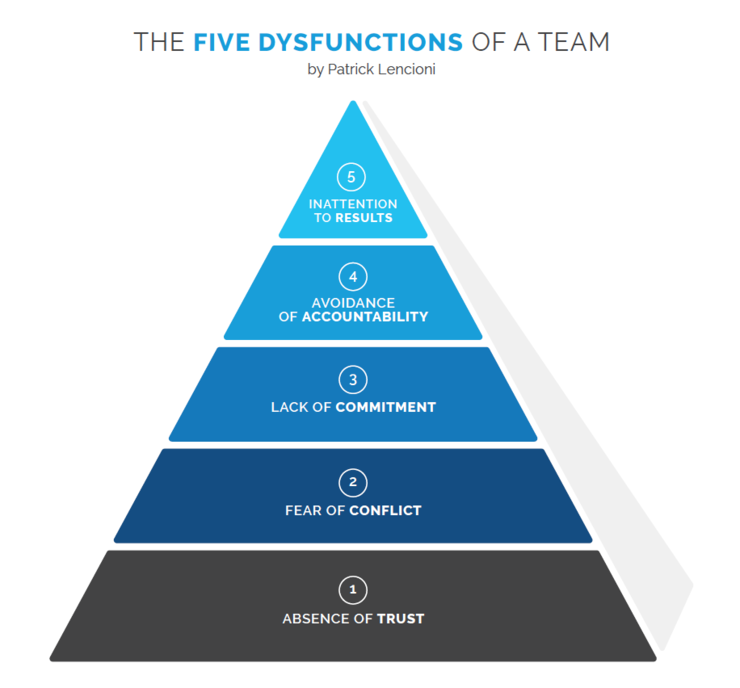Have you ever been called out for dysfunctional behavior in the middle of a meeting?
What was your reaction?
Did you feel embarrassed or defensive?
While such conversations can be uncomfortable, they can also be powerful tools for growth and improvement.
It’s no surprise that it takes work to function well. We love the feeling of the Boeing 747 taking off to soar. Guess what? It took over 14,000 individuals to put together over 6 million parts to make the plane soar!
In this post, we will explore the importance of accountability in teams and organizations.
Accountability conversations don’t have to be long. Even a 30-second exchange can lead to significant improvements in team dynamics. When these conversations are done well, they lead to teams functioning well together – like a Boeing 747.
Called out for a circular argument
“That’s a circular argument.”
Jeff called me out.
He was right.
Without Jeff’s intervention, I likely would have continued to use poor logic in future meetings.
I improved my behavior and this had a positive impact on the board’s functionality. Subsequent meetings were more productive and effective.
Accountability conversations don’t have to take long.
The exchange between Jeff and I took less than thirty seconds.
In a trusting environment, what happens to the team when people like Jeff call one another to account?
We function well
Effective functioning is often compared to a well-oiled machine or a smoothly flying 747.
The reality is that many teams struggle with dysfunction.
One of the common dysfunctions, as described by Patrick Lencioni in “Five Dysfunctions of a Team,” is the avoidance of accountability..
“Jeff didn’t hesitate.”
“Teams that commit to decisions and standards of performance,” Lencioni explains, “do not hesitate to hold one another accountable for adhering to those decisions and standards.”
In the board meeting, Jeff didn’t hesitate.
This begs the question: are you and your team willing to do the same?
Or do you remain silent in the face of dysfunction?
When I’ve shown this model to teams in Albania, the overwhelming response is this:
“Josh, you must start at the foundation; we don’t trust our leaders.”
I’m not trying the skip over the foundation of trust. Trust is a must.
“Accountability can resemble a stand-up comedy.”
Without trust, sadly accountability conversations can resemble stand-up comedy. Have you seen this before?
When I’ve shown this model to teams in Albania, the overwhelming response is this:
“Josh, you must start at the foundation; we don’t trust our leaders.”
I agree that trust is a fundamental requirement for any team to function effectively.
Imagine Jeff and I trying to have the exchange above without trust in one another. It would not have the same result.
When trust is lacking, accountability conversations can become ineffective and resemble a stand-up comedy routine. Have you ever experienced this? Everyone in the room knows that the story being told is not entirely true, but it’s played out as part of the act.
If your team lacks trust, then rebuilding trust should be the top priority. Rebuilding trust—or rebuilding “confidence” as some prefer—often involves taking responsibility for past mistakes.
As such issues are named and addressed, accountability will lead to decreasing dysfunctional behavior and to improved results. In addition to increasing functionality, what else does accountability do for a team?
We create
One day, I arrived at the office at 7:50 am, ten minutes early, for an important meeting.
The receptionist would come in at 8:15 am.
Just the guard, the cleaners, and I. Or so I thought.
I walked into the board room, turned on the heat, and waited.
After a while, Beta, the cleaner, knocked, “There’s a man outside,” she said. “I wonder if he’s here for you.”
I jumped out of my seat.
“Welcome. Come on in!” I said. He entered, and we began to talk.
“I arrived at 7:45 am, went to the restroom, and then sat down,” he explained, smiling. “I kept saying to myself, ‘where is this guy? And you were probably thinking the same thing.”
“I’m glad Beta did not simply check off boxes.”
I’m glad Beta did not simply check off boxes to complete tasks assigned to her. No. She was thinking about the bigger picture of what we were creating–the best possible experience for anyone that walks through our doors.
Let’s apply Beta’s proactive approach to the opportunity that you might have to do something innovative at work.
Brilliant work?
“Less and less effort is spent on the attempt to do brilliant work,” Todd Henry, author of Accidental Creative, explains, “and more effort is spent on the attempt to appear to do brilliant work.”
Stop and read that again.
Now ask yourself, “Am I attempting to do brilliant work?”
“Or am I just acting like it? Am I hoping I can fool my boss, my colleagues, and everyone else?”
Real accountability moves us towards functioning well, creating collaboratively, and ultimately towards growth, even when we don’t hit our goals. In fact, sometimes our most significant growth happens precisely when we fall short of our goals.
We grow
“This year, I want to be able to run a 5K,” I told some friends a few years ago.
An image of crossing the finish line while raising $30K for someone I knew who had cancer flashed through my mind’s eye as I looked at Mount Dajti that morning during my run/walk at the lake.
That day never came. I ran and walked a 5K on multiple occasions, but the most I ran was a 2K due to knee and back injuries (By the way, I haven’t given up and will be heading back to the lake soon!)
“How’s it going?” Friends would ask.
“I didn’t reach my goal today, but …”
“I didn’t reach my goal today, but I had fun biking,” I would say.
Then it hit me.
I didn’t reach the original goal, but growth had occurred—I found a new hobby!
Effective accountability relationships can foster growth, especially when we fall short of our goals.
“Opening your life to a trusted friend can transform you.”
Opening up to a trusted friend about both external aspirations and inner struggles can transform you. By being honest about our current situation, we create a solid foundation for growth.
Ready to Soar?
In conclusion, accountability is the key to functioning well, creating collaboratively, and growing.
It’s not just about checking off tasks. It’s about creating a culture of trust, intentional creation, and continuous learning. By doing so, we can achieve our goals and create value.
It’s an ongoing process.
Your team might not feel like a Boeing 747 in a week or a month. But don’t underestimate the power of these 30-second conversations!
Your Turn
Want to engage more? It will take less than two minutes.
1. Breathe.
Yes. Breathe. If you were here last time, you did this with me, right? If you skipped it last time, that’s okay. This is your chance to Go Deeper. As I typed this, here’s what I did. I paused. I closed my eyes, and I took four deep breaths. You can make time too!
2. Reflect
Tell yourself, “You’re doing a good job.” I don’t know everything going on in your life. But I know two things. One, like me, you’re not perfect. Two, you’ve invested time learning about how to work more effectively. Bravo!
Go Deeper
This section might be challenging. It may be gut-wrenching and soul-searching. You are worth it.
1. Select a recent conversation.
As you read about Jeff and Beta, creating and growing, and goals, did a conversation you have had come to your mind?
If a conversation comes to your mind, briefly jot it down.
2. Reflect.
Ask yourself the questions below. If the conversation was with colleagues or anyone that you can call, pick up the phone and say, “Do you have a few minutes? I’m reading this blog and want to try something.” Then ask the questions below.
“But Josh, you asked me to do this last week!” you might be thinking. I know. We’re building practices.
What happened? [Briefly describe it]
So what? [What matters from this? What did you learn?]
Now what? [Name one thing that you can do as a result of what you learned]
Just for Fun, Just for You
Do you take life too seriously? If so, this section is for you.
Instead of just telling yourself, “Good job!” give yourself (and those around you) a standing ovation. It might be the highlight of someone’s day.


